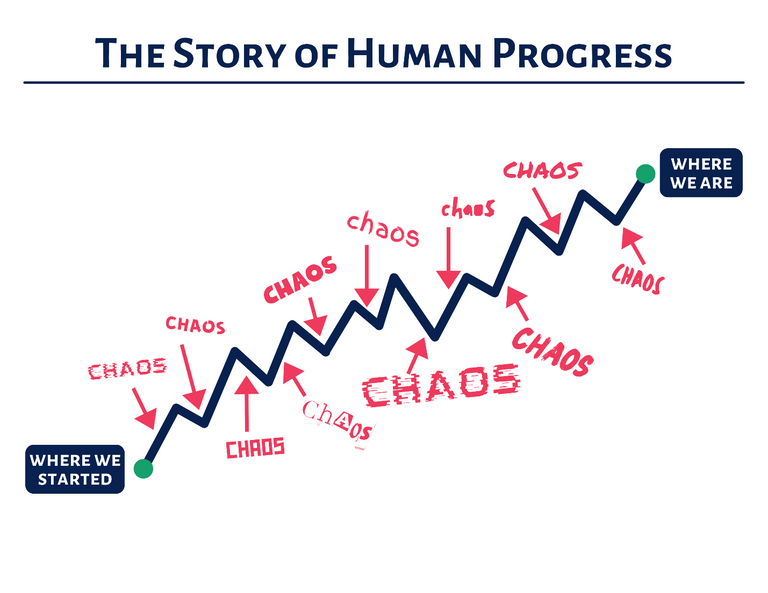A good friend sent me this in an email today.
With all the Doom and Gloom, How is it possible to remain positive ?

One of the all-time great quotes regarding the future comes from 1830 when Thomas Babington Macaulay[1] said,
"On what principle is it that with nothing but improvement behind us, we are to expect nothing but deterioration before us?"
A century later, John Maynard Keynes also noted widespread pessimism as the Great Depression was getting under way (understandably so) in his essay Economic Possibilities for our Grandchildren.[2] As the title implies, note that Keynes' intent was not to be short-term predictive, but to encourage long-term optimism. That said, here's how he described consumer sentiment in 1930,
"We are suffering just now from a bad attack of economic pessimism. It is common to hear people say that the epoch of enormous economic progress which characterized the nineteenth century is over; that the rapid improvement in the standard of life is now going to slow down…"
The similarity between these two quotes a century apart makes it clear that broad pessimism about the future is not a new phenomenon. It's been the prevailing sentiment for the entirety of the modern world and it continues to this day. Ask around, and you'll learn that many people believe our best days are behind us.
With centuries of progress to draw upon, why is this perpetually the case? Here's one theory:
If I ask you for ten ways in which the world might dramatically decline, you could probably come up with ten or more in short order. Apparently, tragedies are easy to imagine.
On the contrary, if I ask you for ten ways in which the world might dramatically improve, you'd probably struggle to come up with just a few.
I think the reason for the struggle is that what will inevitably define progress in the decades ahead is usually beyond our comprehension today. To illustrate what I mean, let's travel back to 1930.
It's obvious that nobody at that time could have foreseen computers, the internet, widely available commercial flight, landing on the moon, cell phones, antibiotics, the incredible reduction of extreme poverty, or countless other landmarks of progress.
With the benefit of hindsight, it's easy to see that not only was long-term pessimism the wrong perspective to have in 1930—despite the turmoil present at the time—but that even the time's most enthusiastic optimists couldn't have believed what the future ultimately held in store.
This is understandable because foreseeing the future is an impossible task given that technology builds on technology and research on research. It's the compounding nature of progress that makes it as surprising as it is incomprehensible.
For what it's worth, I realize how contrarian it is to be optimistic about the future, but as I pointed out, this has always been the case. And while it may be contrarian, all of history shows us that optimism is, in fact, the rational viewpoint. This is just as true today as ever.
Beyond that, one could argue that we have more reason to be optimistic today than at any time before because, as former Fed Chairman Ben Bernanke pointed out in his 2013 graduation address at Bard College,[3]
"Both humanity's capacity to innovate and the incentives to innovate are greater today than at any other time in history."
Re-read that quote and think of the potential it holds at the global level. You see, optimism about the future isn't a blind ignorance to the problems we currently face so much as it is a belief in the innate human desire and capacity to solve hard problems.
The hard problems being solved today in AI, desalination, carbon-free energy, and medical technology (to name a few) are all exciting. And yet, given the compounding nature of research and technology, we can't yet fathom what fruit these developments will inevitably bear in the not-so-distant future.
That's the funny thing about progress. It's as unpredictable as it is inevitable. You just have to believe that it will continue to blossom amid all sorts of chaos. As it always has.
Stay the course.
Email Sent by a friend
Curated by @ultravioletmag